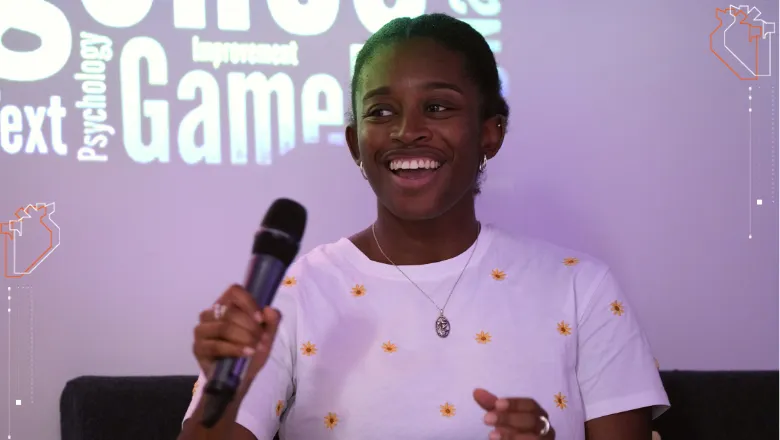AI: Who's Looking After Me?
A new major exhibition and public programme at Science Gallery London playfully and provocatively exploring artificial...
25 October 2023
Tiarna Lee speaks to us about her research on biases in medical Artificial Intelligence, working with Science Gallery London, and her journey from being an undergraduate to a PhD Student at the School.

Tiarna Lee is a PhD student at the School of Biomedical Engineering & Imaging Sciences, King's College London. Her research focuses on evaluating fairness and biases in Artificial Intelligence (AI) used for cardiac imaging. As the STEM community and the public collectively look forward to advances in the field of medical AI and the resulting benefit on patient care, researchers at the School are working to ensure that AI models are trained thoroughly to respond to the unique needs of all patients they serve.
Tiarna explains, "Datasets that are used for training Artificial Intelligence models are often imbalanced in terms of subject demographics, so the resulting AI model has a better performance for the overrepresented group(s) and a worse performance for the underrepresented group(s). I’ve found that a model trained on an imbalanced dataset, for example, with 100% White subjects, will perform poorly for subjects it hasn’t seen, for example, Black subjects. In a medical context, this poorer performance might result in measures like your cardiac function being less accurate, leading to later or worse treatment and worse outcomes overall".
Tiarna's research investigates these disparities in datasets used to train AI. "I’ve always been interested in fairness and bias because it directly affects me, but I became passionate about it following my Master’s when I worked on a deep learning project. I'm looking forward to exploring the causes of bias I’ve identified in my work and ultimately taking steps to mitigate them".
Aside from her research, Tiarna's contributions at King's extend to an array of public engagement projects. This year, she is presenting her work at Science Gallery London for this season's AI: Who's Looking After Me? exhibition. One of these projects is Heartificial Intelligence, which examines the role that technology and community play in the healthcare journey of patients. "Working with Science Gallery London was a great experience. Speaking to young people about their heart conditions was invaluable, as researchers don’t often have the opportunity to speak to people whom their work directly affects. I have also co-hosted events at the Gallery, which has taught me a lot about the public perception of AI and my work. It was also great to be able to create a safe space for people to ask questions they hadn’t been brave enough to ask before!"
We spoke to Tiarna during an exciting time- she connected with us from Vancouver, Canada, where her work has been recognised at the International Conference on Medical Image Computing and Computer-Assisted Intervention (MICCAI 2023). She will be presenting her research at the Fairness of AI in Medical Imaging (FAIMI) workshop, and we asked her what advice she has for young researchers breaking into academia. "I would tell early-career researchers that other researchers are your best friends! Whether it’s help with your project, moral support or inspiration, having a support network will help you through your research."
Finally, with nearly three degrees at King's under her belt, we asked Tiarna what it is about the university and the School that encourages her to pursue her academic career here. "I’ve found King’s is a great place to pursue your interests and find a community that’s passionate about the same things. For me, this is fairness, and there are lots of groups that are working on promoting equality inside and outside of academia. I also have a very supportive research group and have formed great friendships and connections!"
Find out more about Science Gallery London's AI Season Exhibition here, or head over here to read Tiarna's paper on biases and fairness in AI training models.
A new major exhibition and public programme at Science Gallery London playfully and provocatively exploring artificial...